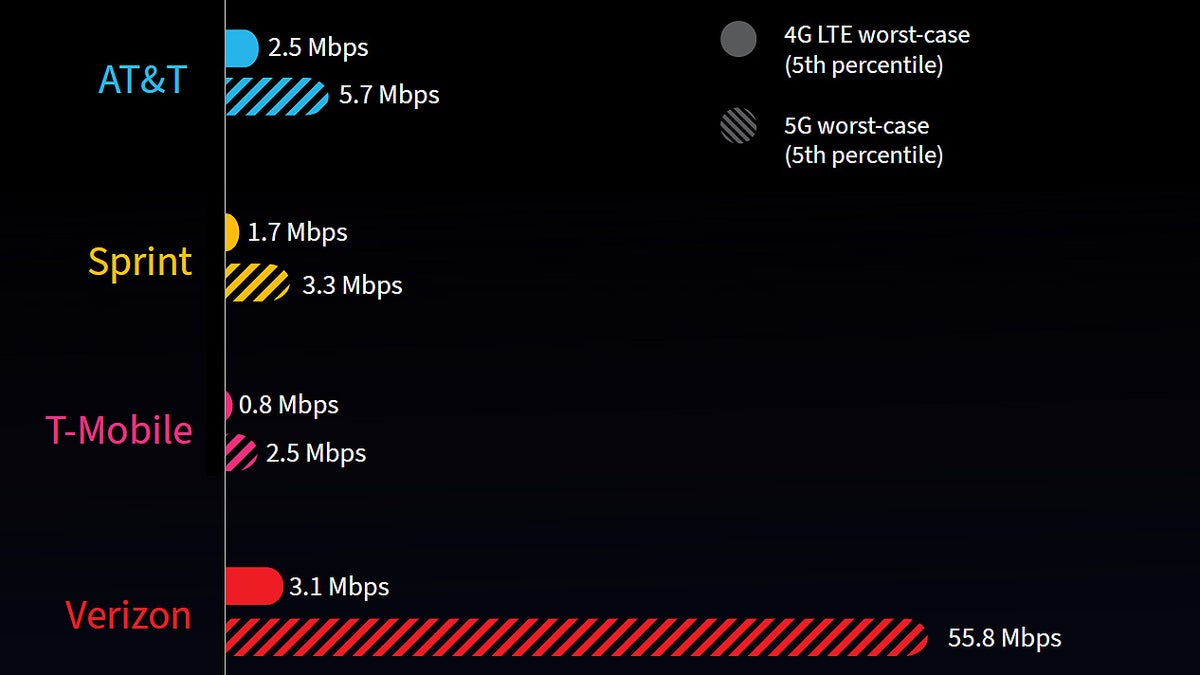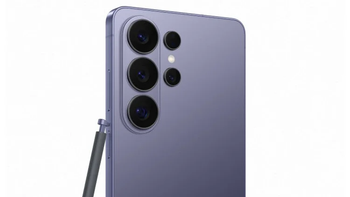Verizon vs T-Mobile, Sprint and AT&T 5G gaming speeds and latency test comparison

After blessing us with an early report on the biggest gainer among US carriers when it comes to network speed improvements, the test aficionados from RootMetrics sent us the next edition of their carrier battles - game streaming on 5G and 4G.
You see, 5G is supposed to usher in not just gigabit speeds, although that's the most marketable benefit, especially with mmWave networks like Verizon's. The bigger advantages, however (4G LTE is fast enough as it is for most purposes) are lower latency and a multiple increase in the carrying capacity of the towers or base stations.
In other others, way more devices, from cars through phones and fridges to smart speakers, can hook up to a 5G connection at once compared to 4G, and with a very low latency at that. We know what you are thinking, isn't low latency good for gaming? It is, and that's exactly what RootMetrics has been testing on 4G and 5G connections in downtown Los Angeles!
Verizon vs T-Mobile and AT&T 5G vs LTE network game streaming speeds and latency
With the recent assault on the game streaming industry from services like Google's Stadia and Micsoroft's xCloud adding to the good ol' Steam Remote Play, lag and responsiveness of online gaming will be at the industry forefront for a good while. Here are the suggested lag requirements of those services for successful online gaming sessions, and the explanation of the new metric "jitter" that joins speed and latency into the mobile testing fray.

While latency is arguably the single most important factor for mobile cloud gaming, jitter can also cause problems for gamers if it’s too high. Jitter, which we measure during our UDP tests, effectively means that latency is inconsistent rather than stable. The effects of jitter are similar to those of latency: high jitter can lead to choppy or laggy gameplay and/or distorted audio and chat functionality, while low jitter can keep games running smoothly (as long as latency is also low). We looked at jitter on both 4G LTE and 5G to provide a closer look at how 5G can impact jitter and the real-world gaming experience. In order for smooth gaming, we recommend jitter below 30ms for casual games in SD and below 10ms for online games in HD.
4G LTEEnter 5G connectivity which promises to bring latency to a minimum and increase streaming speeds for better graphics and higher resolutions to a maximum. How did the carriers fare in all components? Well, it looks like 5G is not the latency savior it was cracked up to be, at least not in downtown LA at this point in time of network development.
- Carrier speeds were fast enough for nearly all cloud gaming, with 5G showing faster speeds than 4G LTE for all four carriers: Data speeds shouldn’t be an issue for gamers in LA, as all four carriers registered 5G median download that surpassed the minimums of the game providers. In fact, only T-Mobile’s 4G LTE median download speed of 16.4 Mbps fell short of the minimum 20 Mbps required for online games in HD, but the carrier’s speed on 5G jumped to 24.3 Mbps.
- Although the full potential of mobile cloud gaming hasn’t yet been reached, 5G could bridge the gap: With 5G showing faster speeds, improved packet loss, and lower jitter results for all four carriers in LA, 5G clearly made an impact on the cloud gaming experience. Lower latency is currently the missing link for seamless cloud gaming, but that should change over time as 5G continues to improve.
- Good news for gamers on AT&T’s network in LA: AT&T’s latency of roughly 45ms on both 4G LTE and 5G was a bit higher than the minimums of the providers, but it was by far the lowest in Los Angeles. In short, AT&T gamers should be able to enjoy nearly any game on a smartphone, with only minor lag expected for multiplayer games that rely on accuracy and precision.
- Sprint scores with impressive speeds on 5G: Sprint’s median download speed jumped from 33.0 Mbps on 4G LTE to a very impressive 61.8 Mbps on 5G, which was topped by only Verizon’s 254.7 Mbps. That said, Sprint’s latency, packet loss, and jitter results were relatively high compared to the competition and could cause problems for complex, multiplayer games in HD.
- T-Mobile’s 5G provides a boost for gamers: T-Mobile offered the most 5G in LA with a 5G availability rate of 32.1% (Sprint trailed at 25.1%), and the carrier’s 5G led to faster speeds, excellent packet loss, and lower jitter. While T-Mobile had the second lowest latency in LA (roughly 77ms on 4G LTE and 5G), lag will likely be an issue for most multiplayer games in HD.
- Verizon’s 5G results highlight transformative potential of mmWave for cloud gaming: Although availability remains limited to targeted areas, Verizon’s mmWave 5G delivered an incredible median download speed of 254.7 Mbps, along with near-perfect packet loss and jitter results. In short, Verizon’s mmWave 5G showed incredible potential, and Verizon’s 5G gamers shouldn’t see any issues from speed, packet loss, or jitter.
If you are interested in the carrier breakdown numbers, here are the Verizon vs T-Mobile, Sprint and AT&T 4G/5G game streaming speeds, latency, and, the new component, "jitter," compared against smooth playback benchmarks:
- Minimum network speed requirements for casual SD games (Tetris): 7-10 Mbps
- Minimum network speed requirements for online multiplayer HD games (Fortnite): 25-30 Mbps
- Maximum latency requirements (5G and 4G LTE) for online gaming: 10-30ms
Follow us on Google News













Things that are NOT allowed:
To help keep our community safe and free from spam, we apply temporary limits to newly created accounts: